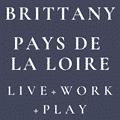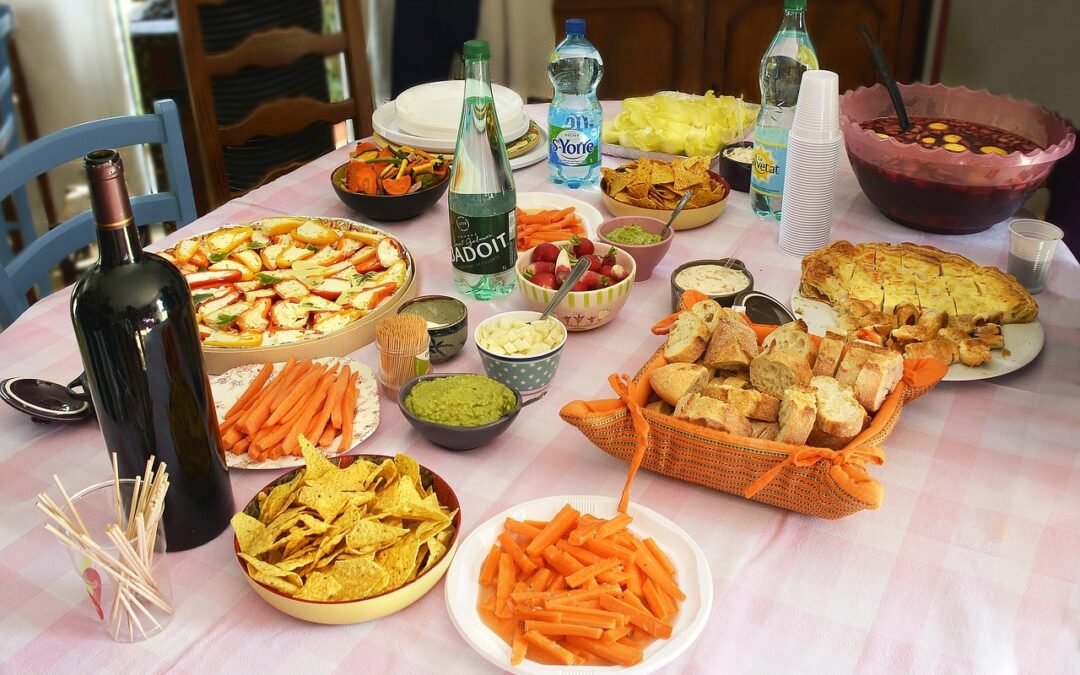![wine_1423468c[1] (267x227)](https://expatsfrance.b-cdn.net/wp-content/uploads/2013/06/wine_1423468c1-267x227.jpg)
First of all, if you’re inviting guests for drinks/aperitif, (or “l’apéro”), they won’t expect a meal, but it is common practice to serve nibbles (such as canapes, peanuts, crisps, saucisson (salami), mini cocktail sausages, small cheese cubes, etc… the combinations are endless). Generally, aperitif guests only stay for an hour – two maximum.
You also need to give a formal invitation – if you just say “come round sometime this afternoon”, they probably won’t come as you haven’t specified a time. The French like to know an exact time… and then they’ll arrive about 15 minutes late, as it is French etiquette to be late. In actual fact, this practice even has a name in France: “Le quart d’heure de politesse”. However, the acceptable length of lateness can vary: punctuality customs differ from one region to the next. In “Province” (i.e anywhere in France that is not Paris), guests tend to arrive on time or only between 5 and 15 minutes late. However, in large cities such as Paris, Bordeaux or Toulouse, it is more common to arrive between 15 and 30 minutes late
Shake hands, kisses and the toast

When serving drinks, glasses should only be filled three-quarters full, and the host should propose a toast; everyone then clinks glasses saying “Santé” (good health), “À la vôtre” (to your health) or even “Tchin tchin”. People normally sip slowly and stop at two drinks.
Well, I’m glad I read up on the French aperitif etiquette… I’m sure that this is a general guide, but forums on the internet tend to generally agree with most of the ‘rules’. Right… better get some invitations sorted!
A short guide of French etiquette for guests:
- Lunch invitation: arrive at 1300. Even though the French usually have lunch at midday, when entertaining it is customary to invite guests to a later hour.
- Coffee invitation: arrive at 1400. Your host will usually serve both coffee and dessert. It can also be a café gourmand which is an espresso served with a selection of mignardises (or petits fours). Try to leave around 1500.
- Invitation to “le goûter” (afternoon tea): arrive at 1600. Leave around 1800-1830 latest.
- Invitation to “l’apéritif”: arrive around 1900-1930. In Summer, you can make it a bit later, i.e 1930-2000. A word of warning: if you are a guest at an aperitif, only stay 1 hour or 1.5 hours. Quite often, aperitif among friends turns into “aperitif dinatoire” (a more hearty drinks and nibble party, a buffet or even an informal appetizer cocktail dinner). It can easily go on until 2300 or even… 2 in the morning! However, try not to overstay your welcome.
- Invitation to dinner: arrive around 1930-2000 depending on the time of year. In Winter, eating dinner at 2000 seems really late whereas in Summer it is still aperitif time!



We live in the United States but our neighbors are French. They have invited us a couples of time to have drinks with them in their home prior to a dinner party for their friends to which we were not invited. This seems awkward to us.
This is not connected to a wedding where I understand this may be traditional. Is this appropriate and traditional in France?
Hi Jim. Thanks for the comment. Yes, this is a fairly common practice in France. It does seem a little rude at first, but I guess it’s a way of getting more people together, and getting to know and introduce people to one another, when having everyone over for a meal might be too much.
What time should I specify on an invitation to apéros? Is it acceptable to state a finish time?
Thank you for the question Ann. Apéros usually begin in the late afternoon or early evening. A common start time is around 6:00 PM to 7:00 PM. This allows guests to enjoy the apéro and still have the option for a later dinner.
Finish Time: It’s not typical to state a specific finish time on the invitation for an apéro. The end time is often left open-ended, allowing guests to decide when they would like to leave. However, apéros usually last about 2 to 3 hours. If you have specific constraints (like a dinner reservation afterward), it’s acceptable to mention this informally to your guests either when they arrive or during the event, rather than on the invitation.
Invitation Wording: When inviting guests, you can keep the wording informal and friendly. Specify the start time, and you might also mention that it’s an apéro, so guests know to expect light fare rather than a full meal.
Cultural Note: The apéro is as much about socializing and enjoying each other’s company as it is about the food and drink. It’s an opportunity to relax and chat in a casual setting. Remember, the key to a successful apéro is creating a relaxed and welcoming atmosphere, so the specifics of timing are often less important than the overall ambiance and social experience.